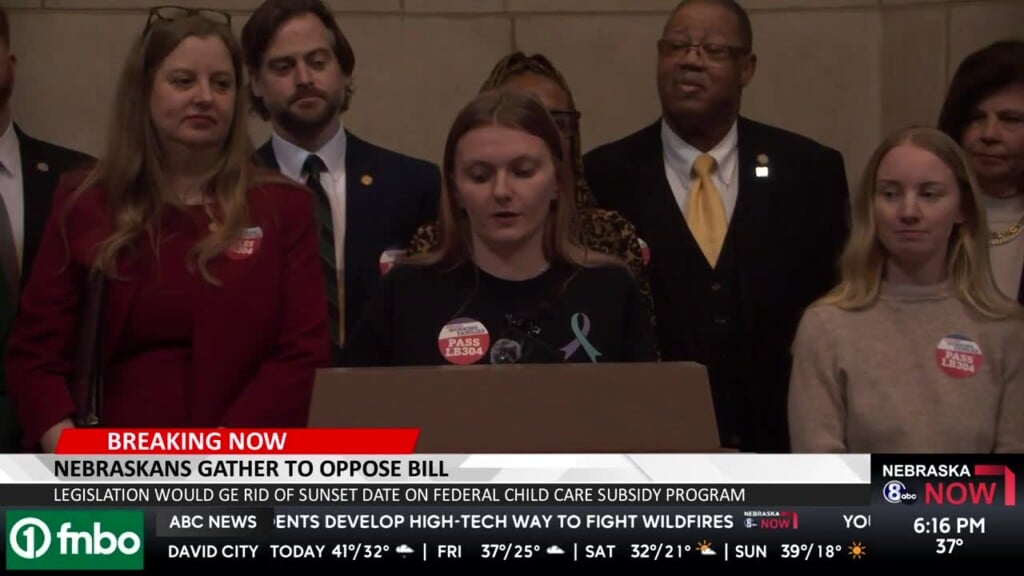Mayor Gaylor Baird plugs plan to get Lincoln ready for more electric vehicles
LINCOLN, Neb. (KLKN) – The City of Lincoln announced its Electric Vehicle Readiness Plan on Thursday.
Mayor Leirion Gaylor Baird said the plan will help reach the city’s goal of 80% net reduction of greenhouse gas emissions by 2050.
She and other city officials are hoping to prepare the city for the rise of EVs by adding more charging stations around town.
“This plan, the first one of its kind in Nebraska, is a roadmap for easing the local transition to electric vehicles by identifying and clearing barriers to adoption, preparing our infrastructure for the additional electrical load, and identifying opportunities for cost savings along the way,” Gaylor Baird said.
The mayor said officials are planning to convert the city’s fleet of vehicles to 100% electric, renewable or alternative fuel by 2040.
SEE ALSO: Lincoln adds 11 compressed natural gas StarTran buses to reduce emissions
The city is working with the Lincoln Electric System to develop charging stations in parking lots and garages and outside businesses and multi-unit homes.
Marc Shkolnick, manager of energy services, said that over the last 10 years, LES has already electrified about 75% of its fleet.
“The path to a successful electric transportation future will require collaboration and engagement from a wide array of stakeholders, including EV owners and prospective owners, dealerships, property owners, businesses, fleet operators, nonprofits and many others,” he said.
SEE ALSO: LES reports 36% drop in emissions, but it’s only part of Lincoln’s climate plan
The city is also working with Lincoln Public Schools to help adapt its fleet of more than 300 vehicles to electric and alternative fuels.
LPS said it’s even working on obtaining electric buses for schools.
But there are still some concerns about how environmentally friendly electric vehicles really are.
One report from the Imperial College of London says that although EVs will reduce carbon emission, they can make tire pollution worse.
A report in The Atlantic this week said that’s because electric vehicles tend to be heavier, wearing down your tires faster.
Zhengchu Tan, the lead author behind the college’s report, said even if all vehicles are eventually powered by electricity, they will still pollute because of tire wear.
“We urge policymakers and scientists to embark on ambitious research into tire wear pollution to fully understand and reduce their impacts on biodiversity and health,” she said.
SEE ALSO: UNL engineers are working to protect military bases from electric vehicle attacks
And while it’s rare for an electric vehicle to catch fire compared with gas-powered cars, electric vehicles do pose unique challenges to first responders.
City officials said that while the plan doesn’t address that issue, they’ll be working with first responders to ensure they’re ready.
They said the EV Readiness Plan will be implemented over the next several years but doesn’t yet have a specific timeline or overall cost.



